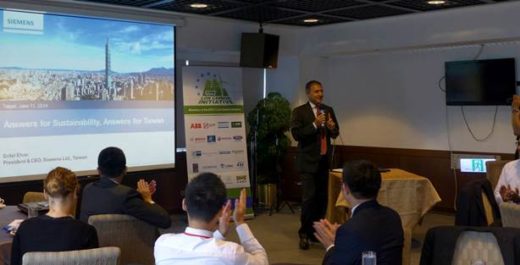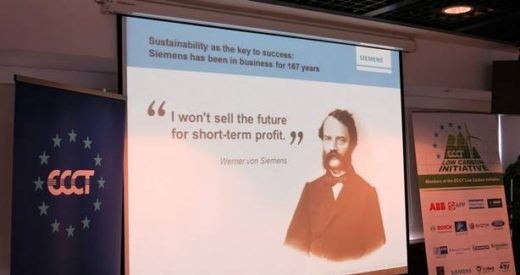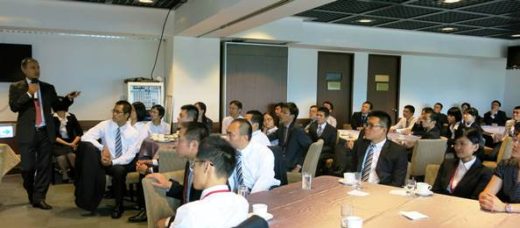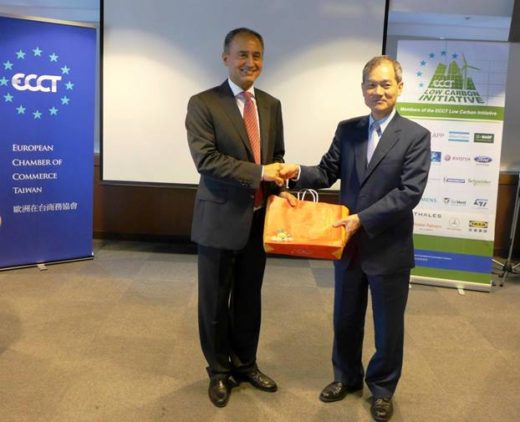ECCT-MoFA Green Leadership Forum Series, Part 3



Sustainability is a guiding principle at the firm which goes back to the company's founder, Ernst Werner von Siemens, who said that he would never sell the future for short term gains. In principle, there is recognition of the need to balance the sustainability of the planet with the need to make a profit and meet the needs of people. Siemens is working to address the major trends in the modern world: urbanization, demographic changes, globalization and climate change and this is reflected in the company's results. Mr. Elver highlighted some of the company's many energy efficient and low-carbon solutions in recent years, which have produced impressive results. In its 2013 fiscal year, products and solutions in Siemens' environmental portfolio generated revenue of €32 billion, accounting for more than 40% of total revenue and helped its customers to cut reduce CO2 emissions by 377 million tonnes, which is equivalent to the total emissions of 12 megacities.

